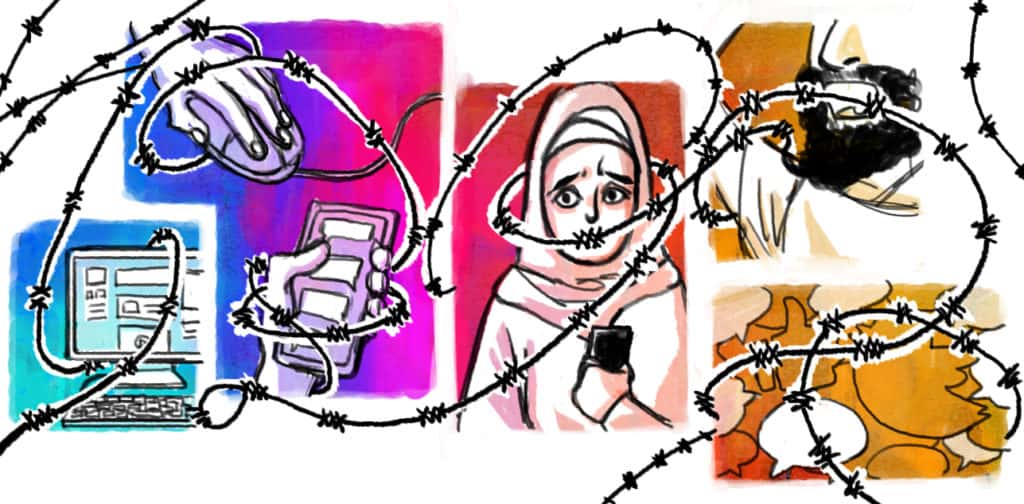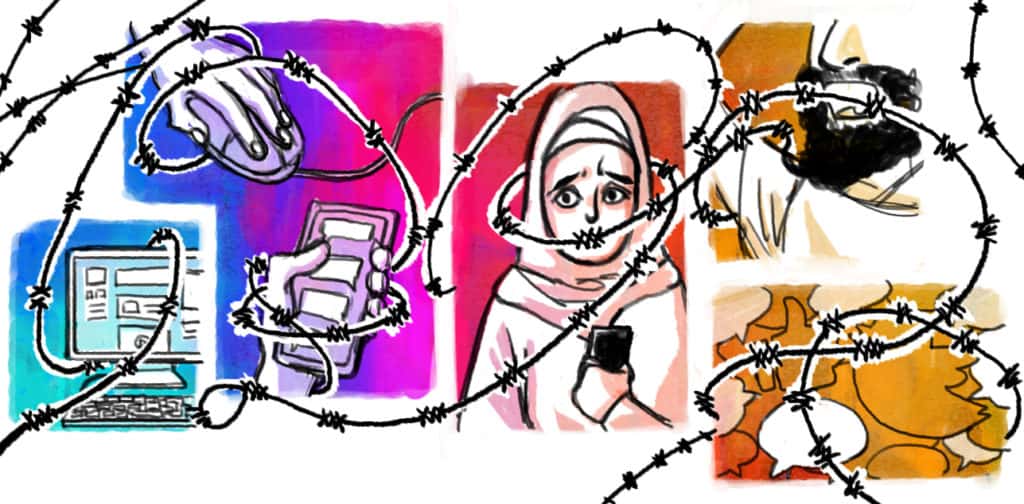
Just one click. The critical Twitter follower is blocked and never annoying again. Politicians also use this social media function. Can you do that?

I block those who don’t agree with me on social media. Politicians always act according to this motto. Can you do that? One who is not allowed to do this is US President Donald Trump. This was decided by a New York court and thus confirms an earlier judgment. The US president blocked seven of his critics on Twitter. Trump violated the first constitutional amendment of the United States. This prevents the government from suppressing critical opinions. Judge Barrington D. Parker Officials who use social media for government work are prohibited from excluding people who disagree from the online dialogue. The Justice Department, which Trump legally represents, argued, “President Trump’s decision to block users on his private Twitter account, does not violate the first constitutional amendment.” A spokesman announced after the verdict, to consider further steps. Trump unlocked the seven followers during the trial.
Journalist sues politicians
Trump exemplifies a whole range of politicians on social media – including in Germany. Kerstin Schreyer, Bavarian Minister of State for Family, Labor and Social Affairs, Green Party politician Renate Künast and Niels Annen, Minister of State in the Federal Foreign Office are some examples. Blocking users becomes particularly questionable when it comes to journalists who are prevented from doing their jobs. That was the case with Annen. The Minister of State blocked Israeli Benjamin Weinthal on Twitter last year. They immediately announced a lawsuit against Annen.
It is not entirely clear why the state minister, who is followed by around 9,000 users, blocked the journalists. Presumably, the article “Foreign Ministry celebrates Iran’s Islamic Revolution” in the Jerusalem Post provided the occasion. Weinthal criticized the participation of the Minister of State in a celebration at the Iranian embassy in Berlin on the 40th anniversary of the Islamic revolution in Iran. He described the blocking on Twitter as “illegal interference with the freedom of the press, information and freedom of expression”. It was no longer possible for him to read Annen’s tweets, which also included public announcements by the Federal Foreign Office. In the meantime, Annen has lifted the blockade. Weinthal’s lawyer warned him. However, Annen sees “no legal basis” in the complaint of the journalist.
Interference with freedom of information and expression

The Society for Freedom Rights (GFF) sees it differently. “If an authority blocks people on Twitter, there is an interference with freedom of information, and at the same time illegal unequal treatment,” GFF board member Boris Burghardt wrote on the GFF website in 2018. Authorities questionably sealed themselves off critical voices through Twitter blockades. The GFF, therefore, planned to sue the police blocking the users. Affected parties should report taking part in a model lawsuit. However, the association has not yet become active. When asked by press spokesman, Anna Mattes said, Head of Fundraising and Office Manager at GFF, in writing: “Our experience so far is that in all cases the blockages have been lifted after this has been requested in writing.” Therefore, there was “no need for a lawsuit.”
The blocking party criticizes the disagreement among users on Twitter, among other things. In a small request from April 2018, members of the Bundestag Niema Movassat, André Hahn and Petra Sitte requested information about the blocking of Twitter accounts by the federal ministries and federal authorities. The Federal Government’s response shows that it has blocked at least 260 reports since 2013. The number of unreported cases is probably much higher. Many authorities did not provide any information. Because “only the number of currently blocked users can be viewed on the Twitter platform. Evaluation over the requested period (editor’s note: 2013 to 2018) is technically not possible and is not maintained.”
Scientific service and lawyers disagree with the federal government
Another finding: the authorities and ministries all act differently. “The federal departments decide independently and according to their rights which criteria are used to block users.” Because “a central decision by the federal government would violate the departmental principle.” The authorities and ministries each had their criteria. Focal points are to prevent the spread of insults, defamation and violent, discriminatory content. Many jurisdictions also referred to netiquette for their social media channels. The Federal Government does not see freedom of information and the press (Article 5 GG) as violated by this practice. After all, a blocked user can still view a Twitter account publicly. He shouldn’t log in.
However, an opinion of the Federal Government’s Scientific Service in 2018 comes to a different conclusion. Specifically, it deals with the blocking of users by the police, but the view also applies to politicians, according to legal experts. The Scientific Service sees the following fundamental rights restricted by the blockade: freedom of expression, freedom of information, the right to equal participation and, in the case of media representatives, freedom of the press. “For the encroachment on the freedom of information, it should be irrelevant that users can gain access to the short message account under a different identity”, the scientific service contradicts the Federal Government’s assessment. “The fact that an official ban on houses does not burden a citizen because he can enter the office again with a false identity” is an equally “pointless” argument,
Blocking is only okay with crimes
Exclusion of a user is only permitted if he is following the neutrality requirement. This means that a user cannot be blocked simply because he expresses “an unpopular opinion”. In the case of crimes such as insults, blocking is okay.
The German administrative courts take a similar view. You define the comment function of official social media channels as a “public institution”. Anyone who creates one undertakes to grant all users equal access — this obligation results from Article 3, paragraph 1 GG. Anyone who blocks users for no reason and thus excludes them is violating their right to equal participation. Blocking affects the freedom of expression and information of those affected. By the way: If you declare your account as private and think that blocking users is allowed per se, you are wrong. A political statement is always regarded as a public institution if part of the communication relates to the office and the exercise of office.
